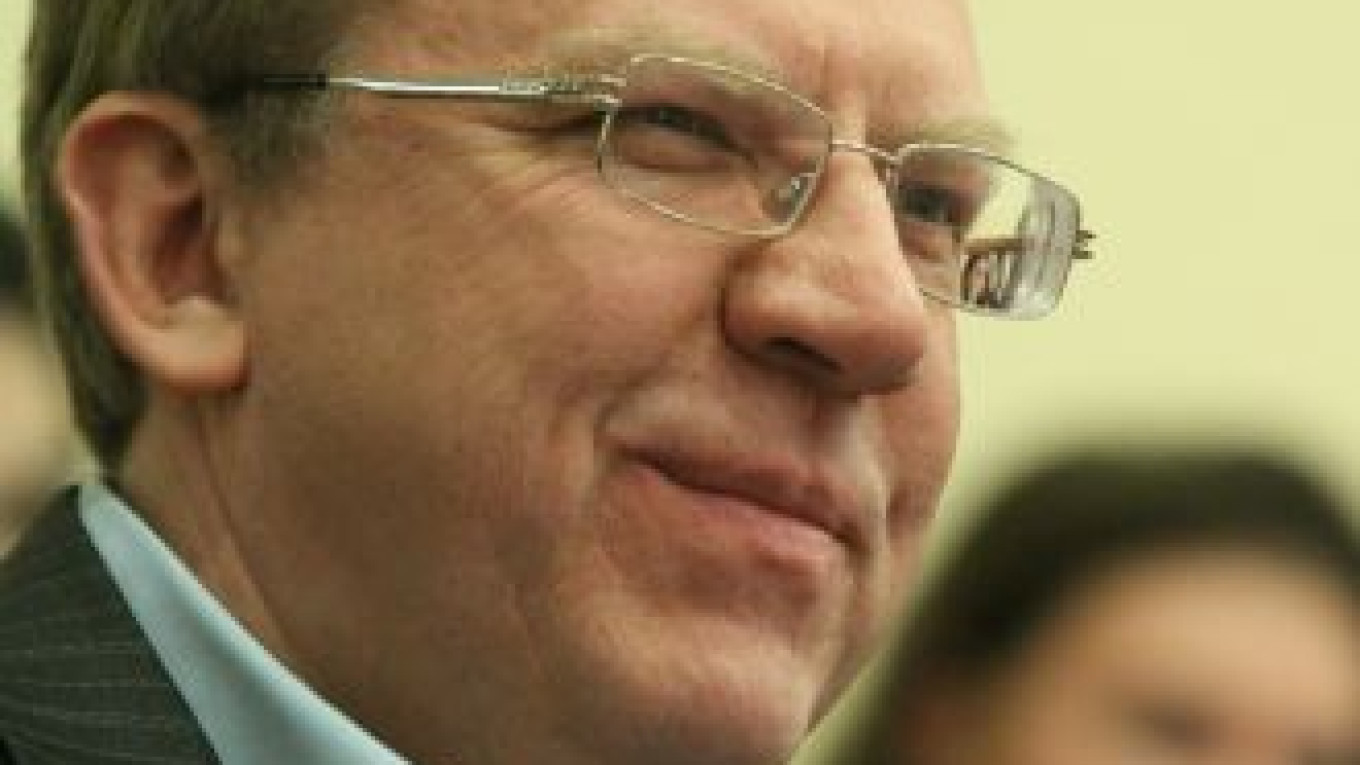Former Finance Minister Alexei Kudrin, who was fired by President Dmitry Medvedev for public statements opposing the president's economic policies, published an article titled "What We Expect From Government."
The article, which appeared in the journal Economic Policy, was written to "encourage the government," Kudrin told Vedomosti.
In the article, Kudrin urges a shift from a paternalistic to a partnership model of interaction between the government and its citizens and business. Kudrin set 10 goals to accomplish this.
The first goal is macroeconomic stability. The fiscal rule that limited the expenditure of oil revenues has to be restored. Otherwise, the supply of currency on the domestic market may increase, and the ruble will become stronger. Then imports become cheaper and exports unprofitable. Taxes do not need to be raised for a long time, and inflation must be kept low — 3 percent to 5 percent, he wrote.
The second task is government reform. The quality of institutions now is deplorable. Without an effective management system, there will be no breakthrough in modernization, or even advancement. Powers and areas of responsibility have to be defined. "The state cannot answer for everything," Kudrin wrote. The authorities should be held responsible not only for their actions, but for inaction as well.
Kudrin said officials should have to declare all conflicts of interest and undeclared conflicts of interest should be grounds for dismissal, whether or not damages or malpractice are proved. He compared corruption to a kind of mold that can't ever be removed completely.
The third problem is decentralization. It is necessary to restore the autonomy of each level of government, he wrote.
The fourth objective is investment growth. The fifth is to reduce the excessive state presence in the economy and protect private property. The state is growing by leaps and bounds and forming state corporations, while the opposite — the reduction of the state's share of the economy — is needed. Economic policy should be relaxed, and the leading role given to private investors, Kudrin said.
The sixth objective is to strengthen industrial and municipal infrastructure — roads, power and water supply, ports and airports, and utilities.
Removing administrative barriers to goods and capital is the seventh task, the article says. Businesses should be given more freedom and an increased degree of responsibility along with it.
The last three objectives are developing human capital, modernizing the labor market and improving the social safety net.
The list is incomplete, Kudrin acknowledged, but it is a list of what should be first and foremost. "Sometimes reform can have the desired effect even without additional resources, but funding without reforms never works," he added.
"The implementation of any program is 70 percent dependent on the team and on political will," Kudrin told Vedomosti.
A Message from The Moscow Times:
Dear readers,
We are facing unprecedented challenges. Russia's Prosecutor General's Office has designated The Moscow Times as an "undesirable" organization, criminalizing our work and putting our staff at risk of prosecution. This follows our earlier unjust labeling as a "foreign agent."
These actions are direct attempts to silence independent journalism in Russia. The authorities claim our work "discredits the decisions of the Russian leadership." We see things differently: we strive to provide accurate, unbiased reporting on Russia.
We, the journalists of The Moscow Times, refuse to be silenced. But to continue our work, we need your help.
Your support, no matter how small, makes a world of difference. If you can, please support us monthly starting from just $2. It's quick to set up, and every contribution makes a significant impact.
By supporting The Moscow Times, you're defending open, independent journalism in the face of repression. Thank you for standing with us.
Remind me later.


